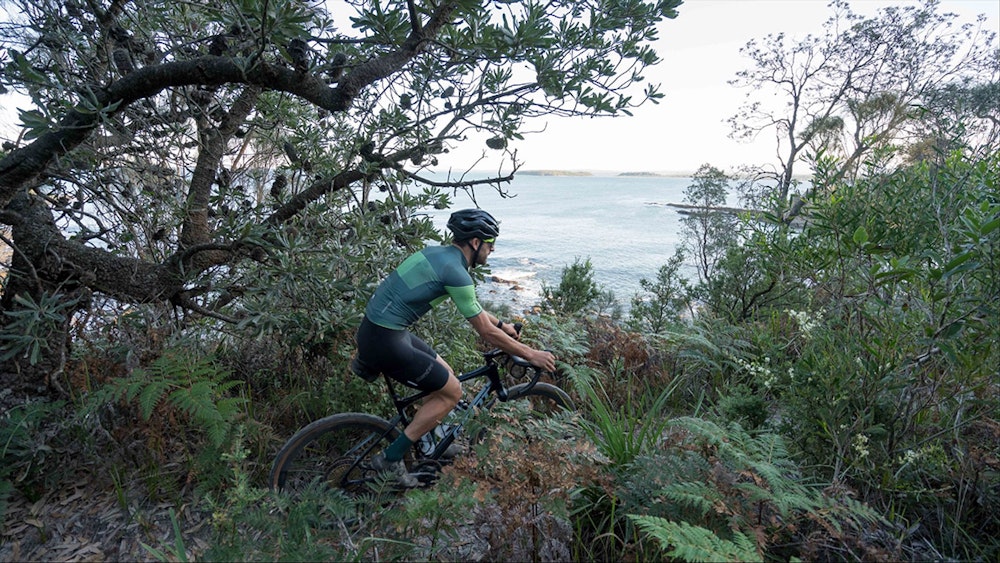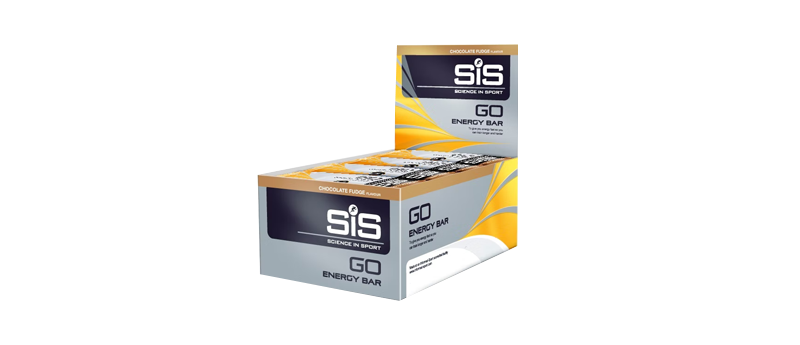Are you preparing for your first endurance race? Nick Locandro, Manager of NRS Cycling Team Giant Racing shares his perspective and has you covered with essential nutrition advice on how to correctly prepare for an endurance race.
Hydration and Food are two of the most important aspects to succeeding in Endurance racing, Nick explains how to use nutrition brand Science in Sport to fuel your ride.
Endurance racing in Australia - the Thunderbolt Adventure
I am tackling the Thunderbolt Adventure race. This is a 250km gravel race with 5000m of climbing. It starts in Gloucester NSW just North of Newcastle tackling the Barrington ranges. For most competitors, this is a two-day bike packing race, however they have recently opened up a special category for 20 riders to tackle the distance in one hit. Completing it in one day means you have to ride solo and a large portion of the race is during the night.
I’m often asked about nutrition for events like these as it’s such a crucial element to ensuring you have enough fuel throughout the ride. Like shorter rides or races, if you haven’t eaten enough, your performance is affected. Generally you can still finish, but when you have 10 hours of racing it’s not as simple!
Let me take you through what you will need.

What to drink and eat during endurance racing
Hydration for endurance racing
My first tip is to drink water from the very start! Long endurance events often start early in the morning when it’s cold and you’re less inclined to drink. Or perhaps the pace is on early and you forget. This will definitely catch up with you later in the day! If you start drinking from two hours in and drink consistently from there, it’s too late.

SIS have a few options for hydration that I use throughout an event. I start with Go Electrolyte, which has 36g of carbs per serving. This is important because carbs will be your main source of fuel for endurance events, so having the ability consume these through hydration gives you a helping hand. And they’re especially helpful at the start of a race where it can be intense and you don’t have time to take in food when you want too. You need to try to focus on getting through one bottle (500ml) every 45-60 minutes. Sweat rates etc. come into play if you really want to get scientific but it’s a good rule of thumb! For a 10-hour race like mine, that means 10 bottles.
Some events will have feed zones. This is where they have pre mixed stations, which is great. But make sure you do your research on which nutrition brand is used so that 1) you are comfortable it will sit well on your stomach; and 2) you know how many carbs per bottle the brand provides so you can plan your fuelling.
On self-supported races (like I’m doing) hydration becomes a bit trickier! If they don't have access to feed zones and you have to use small towns, stopping to fill up and having to carry an extra bag or weight with more electrolyte powder won't be practical, nor that quick.

This is where I turn to SIS Hydro Tablets as they have the sodium required to keep cramping at bay, maintain performance and they are easy to carry! Just water isn’t the worst thing in the world either. If you continue to drink one bottle an hour you still put yourself in good stead, you just need to be mindful you aren’t getting electrolytes or sodium in. If you are someone that has issues with cramping, you may need to consider having something like salt tablets with you.

Food for endurance racing
60-90 grams of carbs per hour is what you need to take on board to be adequately fuelling. Everyone is different, but it’s a good rule of thumb. Remember you don’t need to consume this all at once, you can eat every 20 minutes and take onboard 20-30g etc. Another thing you need to take into consideration is your hydration! If you drink Go Electrolyte at 36 grams of carbs per bottle/hour, you would only need to consume the balance of 54 grams in for that hour with your food choices to arrive at a total of 90 grams. This is something that I have played around with a lot in previous races and training.
Avoid 'Flavour Fatigue'
I am someone who suffers from flavour fatigue, meaning I can't just keep eating the same food or flavours and this is why I utilise a number of options!

Firstly, I always look to take solid food for as long as possible. This is a mixture between the Go Energy Bars (26g of carbs) and Go Energy Bakes (30g of carbs). I also take a mixture of apricot bars and almond fingers. If I am looking for something salty, I will often make a savoury rice cake. From here, I turn to gels.

My go-to is the SiS GO Isotonic Gels (22g of carbs). This is because they do not need to be consumed with water, so they are easily digestible and they are a quick fuel source. Another gel I also use (typically in the last 30-60 minutes) is the GO Energy Caffeine Gel. It still has the same amount of carbs, but also 150grams of caffeine. Everybody reacts differently but for me it gives me a real lift, which is ideal for a mental boost (especially if race tactics are coming into play for the win!)
Nutrition and endurance racing - the wrap-upThe Wrap Up
There you have it. My nutrition strategy for long endurance events. As mentioned, everybody is different so it’s crucial that you use your training rides to practice your fuelling strategy. Be sure to see what works and what doesn’t. This way you can execute well on race day. This is just as important as your pacing strategy, gear choice etc. Even simple things like in the lead up to an event, make sure you use gels. Re-familiarise your stomach with them again. Don’t rock up to a race not having had one for months!
Top Tips to remember for endurance racing:
Remember, drink one bottle per hour and ensure you are getting in 60-90 grams of carbs per hour! I hope you found this helpful and good luck for your next epic adventure!
Looking to fuel your next ride? Browse the full range of Science in Sport nutrition on BikeChain.
BikeChain is a marketplace delivering premium cycling apparel, parts, accessories and nutrition.
Stay up to date with the BikeChain community through
Email | YouTube | Instagram | Facebook












